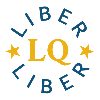The Data Horror Escape Room game as a successful tool for RDM education and engagement
DOI:
https://doi.org/10.53377/lq.16089Abstract
This paper presents a case study of how researchers can be engaged with the topic of Research Data Management in a playful and interesting way. The case in point is the Data Horror Escape Room, developed in 2020, a successful tool for facilitating discussion about research data management during educational, social, and peer-to-peer events. Escape rooms are games that are completed by solving a collection of puzzles and have been shown to be useful tools for game-based learning. The paper reflects on the steps that led to creation of the game, including its technical implementation using Google Sites and gives an overview of how the game was used and feedback it received. Readers are welcome to use the paper as guidance for reusing the escape room for their own events or as inspiration for building a similar escape room for their own purpose. The Data Horror Escape Room is openly available to access through a URL, and is archived as a dataset in Zenodo.
Downloads
References
Abbott, D. (2019). Game-based learning for postgraduates: an empirical study of an educational game to teach research skills. Higher Education Pedagogies, 4(1), 80-104. https://doi.org/10.1080/23752696.2019.1629825
de Boer, L., Karvovskaya, L., Martinez-Ortiz, C., Rodenburg, E., Rudmann, D., van de Sandt, S., & Vermaas, M. (2022). Software Horror Escape Room: Publish or Purrrish. Zenodo. [Computer software]. https://doi.org/10.5281/zenodo.7350528
Bray, G., & McCutcheon, V. (Eds.). (2020). Proceedings of the 2nd Research support games day (RSGD #2) OpenAIR. https://rgu-repository.worktribe.com/output/1005411
Brown, S. M., Word, K., Maneesha, S., Barnes, K., Porter, N., Schaefer, P. M., Nenadic, A., Hodges, T., Lipari, G., Romaniuk, A. A., Sindaci, M. S., Amangoel, Elliott, B., Knüpfer, C., Jaguillette, Wheeler, J., JorgeBch, Kivumbi, M. T., Pohl, A., . . . TM612. (2023). carpentries/instructor-training: The Carpentries Instructor Training February 2023. Zenodo. https://doi.org/10.5281/zenodo.7612756
Chaudhry, A. (2020, July 15). Librarians turned Google Forms into the unlikely platform for virtual escape rooms. The Verge. https://www.theverge.com/2020/7/15/21324558/google-forms-virtual-escape-rooms-librarians-games-puzzles-homeschooling
Clare, C., Cruz, M., Papadopoulou, E., Savage, J., Teperek, M., Wang, Y., Witkowska, I., & Yeomans, J. (2019). Engaging Researchers with Data Management: The Cookbook. Open Book Publishers. https://doi.org/10.11647/OBP.0185
Colunga-Salas, P., Hernández-Canchola, G., Grostieta, E., & Becker, I. (2019). Unicellular endoparasites of bats; (Version V2) [Data set]. Zenodo. https://doi.org/10.5281/ZENODO.3369922
Data Archiving and Networked Services (n.d., a). About DANS. https://dans.knaw.nl/en/about/
Data Archiving and Networked Services. (n.d., b). DANS Data Game. Retrieved March 2, 2023 from https://dans.knaw.nl/en/dans-data-game/
Digital Preservation Coalition. (2022, September). Celebrating Outstanding Contributions to iPres 2022. https://www.dpconline.org/news/celebrating-outstanding-contributions-to-ipres-2022
Dobbs, M. (2019, October 4). How to Build a Digital Escape Room Using Google Forms. Bespoke ELA. https://www.bespokeclassroom.com/blog/2019/10/4/how-to-build-a-digital-escape-room-using-google-forms
Donaldson, M. and Mahon, M. (2019). LEGO® Metadata for Reproducibility [Documentation]. University of Glasgow. http://dx.doi.org/10.36399/gla.pubs.196477
Hamari, J., Shernoff, D. J., Rowe, E., Coller, B., Asbell-Clarke, J., & Edwards, T. (2016). Challenging games help students learn: An empirical study on engagement, flow and immersion in game-based learning. Computers in Human Behavior, 54, 170-179. https://doi.org/https://doi.org/10.1016/j.chb.2015.07.045
Interactive Fiction Technology Foundation. Twine. Retrieved 10 July 2023 from https://twinery.org/
Karvovskaya, L. (n.d. ). Data Horror Escape Room. Retrieved July 4, 2023 from https://vu-nl.libcal.com/event/3603594
LCRDM. (2019). Horror. Retrieved 2 March 2023 from https://www.lcrdm.nl/en/horror
Landelijk Coördinatiepunt Research Data Management. (n.d.). (L)DCC. RetrievedJuly 4, 2023 from https://lcrdm.nl/dcc/
LIBER Europe. (2017). Strategy 2018-2022. https://libereurope.eu/wp-content/uploads/2020/10/LIBER-Strategy-2018-2022.pdf
LIBER Europe. (2023). Strategy 2023-2027. https://libereurope.eu/wp-content/uploads/2022/01/LIBER_STRAT_A5_digital-final-1.pdfMcCadden, K., Schreibmann, S., Edmond, J., Fernie, K., & Usher, C. (2012). Curate! The Digital Curator Game [Lesson]. Zenodo. https://doi.org/10.5281/ZENODO.438694
McGuinn, K., & Spikin, M. (2017). The Game of Open Access [Teaching Resource]. Huddersfield repository. http://eprints.hud.ac.uk/id/eprint/33874/
Rodenburg, E., Karvovskaya, L., Zormpa, E., & Volkova, A. (2022). Open Science Escape Room. Zenodo. https://doi.org/10.5281/zenodo.6963494
Rodenburg, E., Karvovskaya, L., Yeomans, J., Aarts, A., & Aben, B. (2024). Data Horror Escape Room. Zenodo. https://doi.org/10.5281/zenodo.10604005
Scheerders, K. (2022, July 14). Looking towards the future, together. Oncode Institute.https://www.oncode.nl/news/looking-towards-the-future-together ok
Sundsbø, K. (2019). Open Access Escape Room: the key to OA engagement? Insights: the UKSG journal, 32(1), 8. https://doi.org/10.1629/uksg.459
Swiatek, C., Rodenburg, E., Calvert Barnhart, A., Verheusen, A., Bryant, R., Inkret, A., Vovk Iskrić, M., & Vipavc Brvar, I. (2021, June 23-25). LIBER 2021 Session #8: Level up! Building the skills [Conference presentation].50th LIBER Annual Conference, Belgrade, Serbia. https://doi.org/10.5281/ZENODO.5045311
Tobias, S., Fletcher, J.D., Dai, D.Y., & Wind, A.P. (2011). Review of research on computer games. In S. Tobias & J.D. Fletcher (Eds.), Computer games and instruction (pp. pp.127–221). Information Age Publishing.
Yeomans, J., & Schoots, F. (2020, May 7). Delivering data management training remotely. https://www.digitalscholarshipleiden.nl/articles/delivering-data-management-training-remotely

Published
Issue
Section
License
Copyright (c) 2025 Lena Karvovskaya, Joanne Yeomans, Elisa Rodenburg

This work is licensed under a Creative Commons Attribution 4.0 International License.





